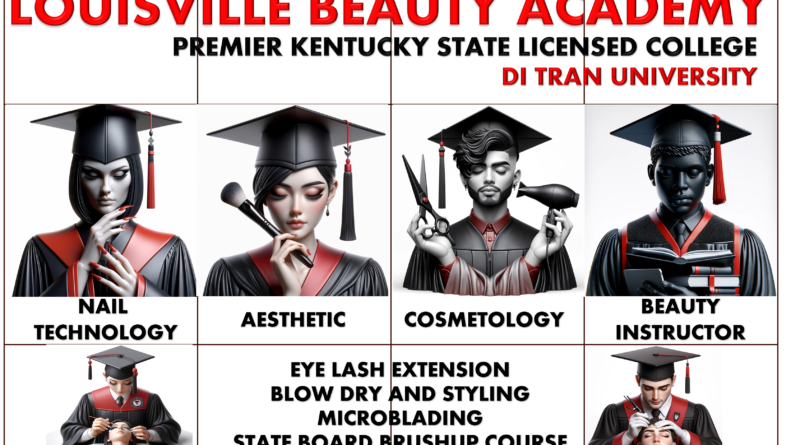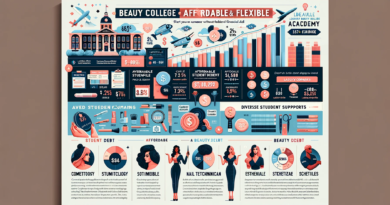Revolutionizing Beauty Education: The Need for More Schools Like Louisville Beauty Academy Across the Nation
The beauty education landscape in the United States has long been marred by high costs and extended training durations, leading to substantial debt for aspiring beauty professionals. This trend, as detailed in the “Beauty School Debt and Drop-Outs” report by the Institute for Justice, highlights a growing concern over the accessibility and practicality of beauty education. Enter Louisville Beauty Academy, a trailblazer in affordable and efficient beauty training, offering a model that could and should be replicated across the nation.
Louisville Beauty Academy: A Model of Affordability and Efficiency
Louisville Beauty Academy, a Kentucky State-Licensed and State-Accredited beauty college, stands as a shining example of how to effectively address the challenges facing beauty education. By significantly lowering the cost of their programs and offering flexible scheduling, they ensure that students can pursue their passion without the burden of overwhelming debt.
Programs and Pricing:
- Nail Technology: Reduced from $8,325.50 to $3,800.
- Aesthetic Program: Slashed from $14,174.00 to $6,100.
- Cosmetology: Down from $27,025.50 to $6,250.50.
- Beauty Instructor Program: Cut from $12,675.50 to $3,900.00.
These dramatic price reductions make education in beauty trades more accessible than ever before.
The Far-Reaching Impact of Affordable Beauty Education
Louisville Beauty Academy’s approach starkly contrasts with the prevailing high-cost beauty education model. By ensuring debt-free graduation and immediate employability, they not only empower their students but also contribute positively to the beauty industry. This affordability means that graduates can enter the workforce without the looming pressure of large student loans, ensuring a quicker and more significant return on their educational investment.
A Call for Nationwide Adoption
The success of Louisville Beauty Academy’s model raises a crucial question: why aren’t there more institutions like this across the country? The need for affordable, practical, and efficient beauty education is clear. If more schools adopted this approach, it could revolutionize the beauty education sector, making it more inclusive and accessible. Such a shift would not only benefit aspiring beauty professionals but also enhance the industry as a whole by injecting it with skilled, debt-free professionals ready to make their mark.
Conclusion
Louisville Beauty Academy’s model presents an inspiring vision for the future of beauty education — a future where affordability and quality go hand in hand. This institution sets a benchmark that others should strive to meet, potentially reshaping the landscape of beauty education in the United States. By following in the footsteps of Louisville Beauty Academy, more schools could contribute to a more equitable, practical, and prosperous future for aspiring beauty professionals across the country.



